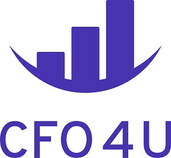Virtual Chief Financial Officers (VCFOs) - The Definitive Guide for New Zealand Businesses
Our guide outlines what VCFOs are, what value they provide, the pros and cons of getting a VCFO and commonly asked questions about VCFOs.
Updated 10 May 2023
Summary
This guide outlines what VCFOs are, what value they provide, the pros and cons of getting a VCFO and commonly asked questions about VCFOs. We also list some of the most popular VCFOs available to New Zealand businesseses. We cover:
Summary
- Building a startup is simultaneously one of the most exhilarating and exhausting jobs in the world. The significant time pressure to do everything can impact a founder's ability to operate effectively.
- With this time pressure in mind, many startups and SMEs can only devote a limited amount of time to manage the company's finances.
- Furthermore, most startups can't afford to employ an in-house Chief Financial Officer (CFO) that typically costs $100,000 to $200,000+ a year in salary.
- Whilst a bookkeeper or external accountant will prepare the accounts and lodge annual tax returns, they don't provide the forward-looking, long term strategic and financial advice that a CFO provides.
- A Virtual CFO (VCFO) helps bridge the gap of receiving strategic financial advice without bringing on a full-time CFO.
- VCFOs have been on the rise recently as startups look to outsource non-core functions to focus on what matters – building the business and the product or service.
This guide outlines what VCFOs are, what value they provide, the pros and cons of getting a VCFO and commonly asked questions about VCFOs. We also list some of the most popular VCFOs available to New Zealand businesseses. We cover:
What is a VCFO?
A VCFO is effectively an on-call CFO that provides an effective way for startups to gain financial guidance and business support without the commitment and cost of a full-time CFO. Top VCFOs cover some of the more operational bookkeeping and financial controller roles, as well as the ability to provide deep strategic and operational business advice based on what the CFO interprets from the financial position and performance of the business.
CFOs typically generate more value in the strategic and operational sense in today's age, given the vast amounts of data accessible and increased compliance requirements of operating a business. Being virtual allows startups to access these insights at a fraction of the cost of hiring a full-time CFO.
VCFOs are an effective way for businesses to gain solid financial support without the commitment and cost of a full-time CFO. Taking on a VCFO can help businesses to strategise and operate efficiently, maximising all possible financial advantages. VCFOs look behind the numbers and make sure founders understand all the complex financial information their business produces to make informed decisions. Some sit in on planning and management meetings to get up to speed on the various aspects of a business, while others stay detached and provide high-level insights.
VCFOs typically have experience in high-level financial roles across various companies of all different shapes and sizes. VCFOs will have experience dealing with various financial topics, including strategic planning, scenario modelling, capital raising and financial projections.
A VCFO is unique in that they are typically not around all the time as a full-time employee, but they are present in critical meetings (so not literally virtual – although some VCFOs may do this) and are present when necessary during financial year-end. Working remotely and working on a contractual, part-time schedule allows more flexibility and cost-effectiveness for both the business and the VCFO.
CFOs typically generate more value in the strategic and operational sense in today's age, given the vast amounts of data accessible and increased compliance requirements of operating a business. Being virtual allows startups to access these insights at a fraction of the cost of hiring a full-time CFO.
VCFOs are an effective way for businesses to gain solid financial support without the commitment and cost of a full-time CFO. Taking on a VCFO can help businesses to strategise and operate efficiently, maximising all possible financial advantages. VCFOs look behind the numbers and make sure founders understand all the complex financial information their business produces to make informed decisions. Some sit in on planning and management meetings to get up to speed on the various aspects of a business, while others stay detached and provide high-level insights.
VCFOs typically have experience in high-level financial roles across various companies of all different shapes and sizes. VCFOs will have experience dealing with various financial topics, including strategic planning, scenario modelling, capital raising and financial projections.
A VCFO is unique in that they are typically not around all the time as a full-time employee, but they are present in critical meetings (so not literally virtual – although some VCFOs may do this) and are present when necessary during financial year-end. Working remotely and working on a contractual, part-time schedule allows more flexibility and cost-effectiveness for both the business and the VCFO.
What services does a VCFO provide?
What a VCFO does will typically depend on the organisation's industry, size, and specific financial needs. The VCFOs are paid usually through a flat retainer or charged by the hour. Here are a few of the services a VCFO might provide:
Startups
A startup typically starts out managing its finances. As the company grows, its financial records become increasingly complex (coupled with no time to plan future growth). Typical startup VCFO services for startups include:
Small to Medium Enterprise (SME)
A thriving SME may employ an accountant or bookkeeper who supports the founder. As the business scales, the founder needs advice about their increasing financial responsibilities and business direction. In this situation, a VCFO will typically:
Large Corporate
Established businesses will already have bookkeepers to maintain their income statements and balance sheets, and an accountant to help with tax and compliance. The founders may want to ensure their operations are more robust but feel they need extra support. A VCFO will typically:
Startups
A startup typically starts out managing its finances. As the company grows, its financial records become increasingly complex (coupled with no time to plan future growth). Typical startup VCFO services for startups include:
- Taking control of finance requirements to eliminate concern about who is responsible for their accounting function
- Streamline their accounting function through implementing processes
- Utilise technology to enable the founders to access their accounting records in the cloud
- Support basic reporting and analytics to provide insights on how the business is performing
- Helping to prepare company to become investment ready - i.e. accounts and records, tracking key KPIs, building financial models to help raise investment capital.
Small to Medium Enterprise (SME)
A thriving SME may employ an accountant or bookkeeper who supports the founder. As the business scales, the founder needs advice about their increasing financial responsibilities and business direction. In this situation, a VCFO will typically:
- Streamline the accounting function, systems and processes to ensure the back-end operations are efficient
- Implement a reporting framework including a KPI dashboard to assist in monitoring business performance
- Implement a cash flow forecasting model to ensure the business stays on top of cash flow, given increased expenditure on product and team
- Review payroll compliance and ensure all record-keeping is in place
Large Corporate
Established businesses will already have bookkeepers to maintain their income statements and balance sheets, and an accountant to help with tax and compliance. The founders may want to ensure their operations are more robust but feel they need extra support. A VCFO will typically:
- Work with the business and build a budget or forecast for the current financial period. This budget would typically include a profit and loss statement, balance sheet and cash flow statement (three statement model).
- Assist in developing their strategic financial plan during expansion, including a three to five-year financial model. This model will be based on key business metrics.
- Work with the business to source finance through banks or potential investors and act as their advisor in these situations
- Ensuring the balance sheet is robust and business risk is managed through the right processes.
Do you need a VCFO?
- Hiring a VCFO can be a game-changer for some businesses and SMEs, but usually works best for businesses between $1 million and $20 million in revenue as a cost-effective way to get expert advice that assists in rapidly scaling the business.
- For a company earning over $20m a year, it's likely they will have their in house finance team.
- Not every company has to earn over $1m a year; many use VCFOs to help them become investment ready. In addition, if a company have a formal board, VCFO services help with board reporting and cashflow forecasting.
- Most startups can't afford an experienced, knowledgeable CFO on a full-time basis and may never consider hiring one. With an accounting professional acting as their VCFO, startups can keep line of sight on essential metrics such as runway, the profitability of current strategies and the ability to add quantitative insight to a business strategy or expansion plan.
- High growth startups can utilise the expertise of a VCFO and guide the founder through the process of scaling the startup. For example, sending quarterly financial updates can assist the founder with key metrics that reflect how close milestones are in relation to the next capital raise. Effective communication with investors and stakeholders will give them reassurance and confidence in the startup.
- A VCFO is fully remote by nature – founders can access the business's information anywhere, anytime and always available through cloud services.
Top reasons you may need a VCFO:
1. Your business is becoming more complex
When it's just the founder working alone, the finances are relatively simple. As a startup gets larger and more complex, with employees, suppliers, vendors, contracts, and other financial liabilities, it can burden the founder to manage all of this. At a certain size, a startup will need more than just an accountant or a bookkeeper. A VCFO can scale and provide more in-depth insights and analysis when and if the startup needs it.
2. You're experiencing rapid growth
Growing quickly is a good thing — but with growth comes increasing complexity and associated compliance costs. Rapid growth can put your financials out of order, especially if you're not prepared. A VCFO can help you navigate periods of accelerated growth and situate the best systems for the next phase of your business.
3. Your financials are volatile, and you're not sure why
Nearly all companies go through unpredictable periods – it's a rite of passage for startups. A VCFO can assist in understanding what is happening and the necessary steps founders need to take to bolster their finances.
Advantages of a VCFO
Outsourcing responsibilities
A VCFO can help you roll out strategic plans and provide financial forecasts and modelling to support the startup's growth. VCFOs offer a unique ability to outsource some of the key financial requirements out to another party rather than having to sort these issues out internally.
Flexible
VCFOs typically work on an ad-hoc basis, providing you with the accounting, financial forecasting and strategic support you need when you need it. This could be on a set day during the week (e.g. every Monday, the VCFO works on issues related to your startup) or on a project basis (e.g. during this three week period, the VCFO will work on the startup's annual report).
VCFOs provide unique flexibility to work as many or as few hours as the startup needs without sacrificing the quality of work or experience.
VCFOs provide unique flexibility to work as many or as few hours as the startup needs without sacrificing the quality of work or experience.
Ability to handle complex situations
VCFOs work with many different organisations of different size and financial requirements. An experienced VCFO has likely dealt with a variety of financial issues. With this experience, they're able to bring unique insights into the current problems startup owners face today to ensure issues are dealt with swiftly and efficiently.
Fast to implement
VCFOs have experience in quickly assessing what needs to be done from a financial or operational perspective, whether that's gathering information, drafting financial reports or implementing improved accounting processes.
Cost-saving
One of the top benefits of hiring a VCFO is access a high level of expertise without paying the typical cost of an in-house CFO. By only using the services you need (accounting, financial reporting, payroll, etc.), costs are significantly lower by hiring a VCFO than hiring a full-time CFO for your organisation. Furthermore, VCFOs are only required when there are actual tasks and responsibilities, instead of a full-time CFO that may not have much work to do for half of the calendar year.
Customised service
Startups have vastly different financial needs depending on what industry they operate in. A VCFO service can customise the skills and scope of work necessary to fit each startup. These services can be adapted depending on what the startups needs.
Deep industry knowledge
One of the other biggest advantages of a VCFO is that your company benefits from the same expertise, analysis, judgment, and insight usually available only to larger companies. Most VCFOs deal with a variety of different clients across various verticals and sectors. This enables VCFOs to demonstrate a deep, stage-agnostic understanding of your startup while still drawing from the lessons learned in these different scenarios. A VCFO sees countless different financial situations. It's highly likely that whatever unique situation a startup is in, the VCFO has seen it before and will be able to advise you accordingly.
Disadvantages of a VCFO
A VCFO is not necessarily right for all startups. While a VCFO comes with many pros, there are a few cons to be aware of, which we outline in detail below:
Variance in quality of VCFOs
VCFOs are typically ex-accountants or ex-CFOs that have worked in previous accounting firms. However, it's difficult to gauge whether the VCFOs have the necessary experience to support and manage your startup. The quality of VCFOs can vary enormously, so it's important to get quality references or interact with the team beforehand.
Hiring a VCFO too early may complicate your business priorities
Some early-stage startups may not require the detailed services of a VCFO. If this is the case, you'll waste time and money on a very expensive service.
For example, if you hire a VCFO before you have a decent bookkeeping system in place, they will spend their time dealing with the incomplete data they're given. VCFOs are too expensive to be doing manual entry and data cleaning. Some startups simply don't yet need high-level strategic advice and have other issues that a simple bookkeeper or accountant could do.
For example, if you hire a VCFO before you have a decent bookkeeping system in place, they will spend their time dealing with the incomplete data they're given. VCFOs are too expensive to be doing manual entry and data cleaning. Some startups simply don't yet need high-level strategic advice and have other issues that a simple bookkeeper or accountant could do.
VCFOs won't truly know or understand your specific industry
It takes time (and first-hand experience in a similar industry) to thoroughly understand the business and market dynamics. Don't expect a VCFO to step in and instantly understand your problems on day one.
VCFOs may leave your team frustrated
VCFOs aren't available to answer day-to-day questions in the same way a permanent CFO in the office would. This means a VCFO may not appreciate the context, roadblocks, or specific nuances your startup faces.
Lack of historical context
One of the benefits of a full-time CFO is continuity. Because they're an active member of your startup exclusively, they'll have knowledge of the decisions that were made a year ago, why they were made and how that affects strategy for the next few years. A VCFO supporting your startup may change from year to year, and this knowledge of your startup may be lost as new VCFOs get rotated through.
Lack of Vision
When you hire a full-time CFO, you're able to hire someone that aligns with your culture and overall vision. A VCFO may not necessarily have these traits. Because VCFOs are typically wired to make the company financially healthy, they often only look at the numbers and don't consider other important variables. A founder will dream big, but the VCFO may not share those dreams.
Frequently Asked Questions
Should I hire permanent, or get a VCFO?
Not all startups should hire a VCFO. It will largely depend on the stage of the business you're at and whether there are more benefits than costs of having outsourced financial support. If you're $1m ARR+ and are increasingly experiencing growing pains on the financials, then a VCFO may be a good option.
Why are VCFOs so common?
The rise of cloud accounting and improved data manipulation has supported the rise of VCFOs. Accountants have had to improve the value they add to businesses, and VCFOs have become the logical extension of bookkeeping and accounting services.
With increased competition, typical accounting firms are having to expand and differentiate the services they provide. Some of the key trends supporting this move include increased regulation, technology adoption, and non-core functions outsourcing.
With increased competition, typical accounting firms are having to expand and differentiate the services they provide. Some of the key trends supporting this move include increased regulation, technology adoption, and non-core functions outsourcing.
What are the typical costs for a VCFO and what should I be paying for one?
You typically only pay for the VCFO services you need. Hiring a VCFO can be significantly cheaper when compared to a full-time CFO. VCFOs can cost anywhere from $2,000 to $10,000+ a month. This typically varies depending on the complexity of the work and the types of services required. Each VCFO will have different experiences in various sectors or industries.
Know This: It's important to find a VCFO that has strong experience in the vertical you operate in.
Know This: It's important to find a VCFO that has strong experience in the vertical you operate in.
Why is there a rise in VCFOs? Is this linked to remote work?
Until recently, CFOs didn't provide strategic advice, and most small businesses didn't know CFOs could provide this level of advisory. This has changed with the rise of remote work and the improved datasets available to VCFOs.
One reason today's business leadesr upgrade from transactional accounting services to a VCFO is because a VCFO will typically have more experience and data to draw their insights from. New technologies allow CFOs to work remotely (hence the virtual aspect) and draw on deep insights from multiple different industries that traditional accountants would not be able to access.
The quality of operational advice and real-time financial intelligence has never been better. Given the rise in remote work and the ability to reduce upfront costs to spend on other initiatives (product development, key hires, market analysis), the "virtual" element of VCFOs has become increasingly more attractive.
One reason today's business leadesr upgrade from transactional accounting services to a VCFO is because a VCFO will typically have more experience and data to draw their insights from. New technologies allow CFOs to work remotely (hence the virtual aspect) and draw on deep insights from multiple different industries that traditional accountants would not be able to access.
The quality of operational advice and real-time financial intelligence has never been better. Given the rise in remote work and the ability to reduce upfront costs to spend on other initiatives (product development, key hires, market analysis), the "virtual" element of VCFOs has become increasingly more attractive.
Do VCFOs do a worse job than hiring a full-time CFO?
It depends on the VCFO you hire. On the one hand, a VCFO can do the same job, if not a better job, as they are not subject to the inherent biases of being employed full time. An employed CFO may elect to work less hard given he already has a steady job and may be reluctant to work faster as he's likely to get given more tasks.
A VCFO is constantly focused on winning work and making sure clients are happy with the service – so they're always going to be doing the best work possible to ensure retention. That said – a VCFO will not be interacting with your business as frequently as a full-time CFO – so their advice and support could be limited, or it may take them longer to understand your business and complete the required tasks compared to a normal CFO.
A VCFO is constantly focused on winning work and making sure clients are happy with the service – so they're always going to be doing the best work possible to ensure retention. That said – a VCFO will not be interacting with your business as frequently as a full-time CFO – so their advice and support could be limited, or it may take them longer to understand your business and complete the required tasks compared to a normal CFO.
Can I use a VCFO to raise capital?
Some VCFOs may handle fundraising for your startup, but it can come with caveats. The founders are typically the ones who should be developing relationships with investors rather than a VCFO that isn't working at the startup day-to-day. Where VCFOs can support capital raisings by assisting with drafting slides, documents, or financial models for investor calls or presentations.
Founders are still typically expected to be the first point of contact for capital raising, but beyond the Series B+ rounds, an in-house CFO is typically expected as the business will drastically increase in complexity and a VCFO will likely not cut it from that point onwards. Our raising capital guide outlines more details.
Founders are still typically expected to be the first point of contact for capital raising, but beyond the Series B+ rounds, an in-house CFO is typically expected as the business will drastically increase in complexity and a VCFO will likely not cut it from that point onwards. Our raising capital guide outlines more details.
I'm a current CFO. How can I adapt to become a virtual CFO – and what does that look like?
VCFOs require a drastic shift from the typical CFO role. Most VCFOs will utilise some form of cloud-based accounting system and typically interact with their clients on an ad-hoc basis. Relationships with clients are typically much lower touch than typical CFO roles. Learning how to upskill in these tasks will be essential to pivot to a VCFO role.
List of New Zealand-based VCFOs
We list a sample of trusted VCFOs below as a starting point. Please note, no VCFO company has paid to appear on this list, and MoneyHub.co.nz has no relationship with any company below. Their inclusion on our guide is not a recommendation or endorsement.
Oxygen Advisors
|
Oxygen Advisors are a team of Virtual CFOs. Services include providing monthly reporting and metric dashboards, through to strategic support while raising capital. Their VCFO services are target high-growth companies.
|
CFO 4 U
|
CFO 4 U helps high-growth startups monitor their financial performance, remove the day-to-day stress about finances, and provide increased comfort at the board level. CFO 4 U also works with startup founders to prepare the company to become investment-ready.
|
Wise Advice
|
Wise Advice offers a Virtual CFO package designed to benefit smaller businesses with a big business service with an affordable, fixed monthly fee. Services include Xero work, forecasting, analysis and strategic planning.
|
Related Guides
- How to Start a Business
- Raising Capital
- Product Market Fit
- Crowdfunding vs Bank Financing
- Blackbird vs Movac
- How to Become an Angel Investor
- How to Raise Money from Angel Investors
- Alternatives to VC Funding
- Hiring for a Startup
- New Zealand Startup and Founder Incubators
- Expanding Offshore
- Invoice Templates
- Business Podcasts











